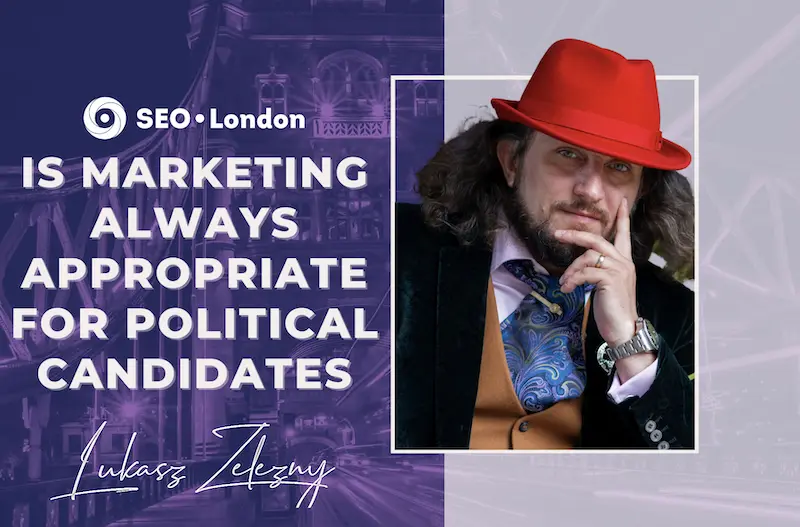

Election seasons are often compared to heavyweight championship bouts, with contenders sizing one another up and striking strategic blows. Amidst this spectacle, marketing has become an inherent weapon in the political candidate’s arsenal. But a question frequently raised is: “Is marketing always appropriate for political candidates?” Intriguingly, it’s not as cut and dry as you might think. As we navigate this intricate topic, I invite you to open your mind to new perspectives as we unravel the advantages, drawbacks and strategies linked with political candidate marketing.
For my next section, I’ve picked:
Definition of Marketing in Connection to Political Candidates
When discussing marketing within the context of politics, our focal point extends beyond simple advertisements or promotional gimmicks. Instead, it morphs into something far more complex—marketing becomes a comprehensive strategy politicians and their teams use to shape public opinion and secure votes.
To clarify further:
- Candidate Positioning: In essence, marketing revolves around creating a favourable image of the politician amongst constituents, which resonates with their values or solves their problems.
- Campaign Messaging: This means creating powerful narratives about the purported abilities of the candidate or highlighting comparisons with other candidates on significant topics.
- Constituent Engagement: Last but importantly, direct engagement activities with voters, entailing rallies, policy discussions and overall involvement in community affairs, also come under marketing.
I hope these points shed light on how integral marketing can be for all levels of politically aspiring individuals—from town council members to presidential nominees—all rely heavily on effective campaigning as part of their path towards electoral success.
Definition of Marketing in Connection to Political Candidates
Marketing, at its crux, is all about communication. It’s the vehicle that allows businesses—or in this case, political candidates—to express their unique value and message to potential customers or voters. Yet, when it comes to discussing whether marketing is always appropriate for political candidates, we need to have a comprehensive understanding of what it constitutes in the realm of politics.
In connection with political candidates, marketing goes beyond buying advertisements or distributing flyers. It involves strategically managing a candidate’s image and reputation by controlling every touchpoint voters can interact with. These touchpoints may include everything from TV appearances and speeches to social media posts and websites.
A well-orchestrated political campaign employs multiple expertly blended marketing strategies—such as public relations efforts for positive press exposure, digital marketing tactics (think targeted email blasts) for niche audiences, and even direct campaigning methods like cold calling or door-to-door visits—that aim not only to disseminate a candidate’s platform points but also foster an emotional connection between the candidate and their prospective constituents.
One critical aspect of political marketing lies in shaping public opinion. Using a myriad of techniques such as messaging reframing or issue positioning (often through narrative-focused ad campaigns), effective marketers work tirelessly behind the scenes so that their affiliated politician resonates positively with the population.
However, all these activities nurture an essential question—is marketing always appropriate for political candidates? As we delve into this intricate topic, remember that ‘appropriate’ will vary greatly depending on the ethical constraints kept by individual campaigns. No matter the stance you take after our exploration here, the role of marketing in bridging politicians and voters is undeniably significant today.
Benefits of Marketing for Political Candidates
As an experienced content writer, I’ve spent countless hours researching the complex marketing world to extract tangible benefits and their impact on various sectors. For political candidates specifically, the benefits are both distinct and incredibly valuable. Here’s why.
What to ask an SEO Consultant
Enhanced Voter Outreach
Firstly, when a political candidate leverages effective marketing strategies, reaching out to voters becomes more straightforward. Political candidates can utilize various marketing platforms and techniques like targeted ads and community engagement events that address different voter demographics.
Shaping Public Perception
Moreover, how people perceive you is vital in politics. A well-executed digital or traditional marketing strategy helps inform voters about your policies and shapes the overall perception towards them. By showcasing their actions, thoughts and motivations through proper channels, they enhance transparency – something coveted in politics.
Fueling Healthy Competition
Last but not least – competition. Is marketing appropriate for political candidates? If healthy rivalry is what we seek in our democratic institutions, then yes, most definitely! Proper campaigning rivets public attention onto issues mattering most to them – indirectly encouraging all parties to perform better to win public favour.
As we delve deeper into this topic later on- including the varieties of such strategies (like Digital and traditional Marketing) and potential risks associated – I hope so far it’s clear that marketing isn’t always just ‘appropriate’ but potentially hugely beneficial for political candidates.
Types of Marketing for Political Candidates
As we delve deeper into the relevance of marketing for political candidates, it’s essential to identify the different categories this broad term encompasses. At its core, political marketing revolves around strategies to develop effective communication with potential voters. A common approach categorises them into Digital Marketing and Traditional Marketing.
Digital Marketing
Digital marketing has revolutionized how political candidates communicate with their electorate in recent years. This modern method is appreciated due to its impressive reach and targeted capabilities.
A significant part of digital marketing lies in harnessing the power of social media platforms. From Twitter to Facebook, Instagram to LinkedIn, these channels offer politicians a direct line to their constituents. They can share instant updates, engage followers in real-time discussions and address concerns publically – fostering an open dialogue often lauded by voters.
Next, we have email campaigns, which allow candidates to deliver precise messages straight into a supporter’s inbox. Tailored content like videos or infographics can significantly increase engagement rates, leading to fruitful results during voting days.
But let’s not overlook the role of websites—often acting as the central hub for a candidate’s digital presence; they provide comprehensive information concerning campaign promises, policy outlines and fundraising events.
Lastly on our list are sponsored online ads — using tools such as Google AdWords and Facebook Ads enables reaching audiences wider than personal social circles.
Moreover, while pondering, ‘Is marketing always appropriate for political candidates’? We cannot ignore the potential impact search engine optimization (SEO) yields by optimizing online content without necessarily implementing paid strategies’. Strategically leveraging SEO techniques ensures higher organic traffic towards candidate profiles or campaign websites.
Traditional Marketing
While there’s no denying that digital has ascended to dominance, traditional forms of marketing remain impactful in political landscapes. These methods continue proving their effectiveness primarily when targeting demographics less prone to extensive technology usage or residing within areas bearing limited internet accessibility.
First, nothing beats face-to-face interactions — whether through town hall meetings, local gatherings or door-to-door campaigning. They provide a personal touch and enable candidates to bond authentically with potential voters.
Broadcast media, primarily television and radio, also remain influential outlets. Despite the rise of digital platforms, millions still keep tuning in to TV channels for news consumption — making it an ideal medium for sharing campaign messages widely.
Print advertising remains effective, too. Flyers, posters and direct mail campaigns can help localize campaigns targeting specific neighbourhoods or demographical groups.
Furthermore, Political rallies and public speeches also stand firm within traditional marketing means. Besides rallying supporters’ energy, they offer opportunities for coverage across newspapers and increase visibility among people outside the immediate attendees.
This section is dedicated to strategizing political campaigns – both digital and traditional methods possess unique merits. Often, blending both strategies creates comprehensive political marketing plans catering to diversified voter segments, resulting in maximum exposure henceforth leveraging their strengths optimally to answer ‘Is marketing always appropriate for political candidates?’.
Potential Risks of Marketing for Political Candidates
At this point, you might be wondering if marketing is always appropriate for political candidates. Indeed, while efficient and well-placed marketing can significantly benefit political campaigns, it’s crucial to acknowledge that inherent risks are also involved.
Firstly, one significant risk pertains to public backlash. If the public perceives the campaign media or message negatively, it can do more harm than good. Missteps in advertising messages can alienate voters instead of captivating them. In such instances, poorly received ads could haunt a candidate’s campaign throughout its entire duration.
On another note, think about misinformation – intentionally or not. Political marketing is scrutinised, and every tidbit of information on public platforms will be analyzed extensively. False facts or misleading messages can easily backfire once debunked and may severely tarnish a candidate’s character and reputation.
Here’s a brief overview of the risks involved:
- Negative Public Reactions: Advertising content that offends or repels potential voters.
- Misinformation: Incorrect or misleading facts leading to trust erosion.
- Reputation Damage: One bad move in marketing could cause irreversible damage to a candidate’s image.
However, at the heart of these potential pitfalls lies an arguably even larger issue – ethical considerations surrounding political advertisements. The question often raised in discussions relates closely with our main keyword – Is marketing always appropriate for political candidates?
When delving into ethics, difficult questions arise regarding transparency and fairness, further complicating the already intricate world of politics.
The push-and-pull between privacy concerns and targeted advertisement also adds another layer of complexity to this matter – where does one draw the line between persuasive tactics and invasion of privacy?
In conclusion, while effective marketing methods can undoubtedly act as potent tools within a politician’s arsenal, they come attached with specific vulnerabilities that need careful navigation and responsible handling to steer clear of more harm than gain. Yesterday’s solutions may not guarantee tomorrow’s successes. While the matchup between politics and marketing isn’t end anytime soon, it is becoming increasingly more challenging for politicians to strike the right balance.
In wrapping up this FAQ section covering whether or not marketing is always appropriate for political candidates, remember, as with any tool …the benefit largely depends on judicious use … keeping ethical considerations at the forefront .
This post was last modified on %s = human-readable time difference
Recent Posts
I Spent $2000 on Visual Links with Rhino Rank: Here’s My Honest Review
In the ever-evolving landscape of SEO and digital marketing, Rhino Rank continues to lead the…
What is SCO in digital marketing
In this fast paced digital world understanding SCO in marketing marketing is key to anyone…
What is ?srsltid= parameter
In the world of digital search and navigation, there are many mysterious parameters hidden in…
Google My Business: How to Check Your Ranking
In today’s world we live in, having an online presence is key for any business…
How to Get to the Top of Google Maps
In this digital age visibility is everything and being at the top of Google Maps…
How to calculate organic click through rate
In the world of digital marketing we need to know how to calculate CTR and…